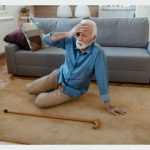Vestibular rehabilitation is a specialized form of therapy designed to help individuals who are experiencing issues with their vestibular system. The vestibular system is responsible for maintaining balance, spatial orientation, and coordinating eye movements.
During vestibular rehabilitation, a trained therapist works with the patient to address symptoms such as dizziness, vertigo, imbalance, and difficulty with coordination. The therapy involves a series of exercises and techniques that aim to retrain and enhance the brain’s ability to process vestibular signals and improve overall balance and stability
Some common exercises used in vestibular rehabilitation include gaze stabilization exercises, balance exercises, and habituation exercises that involve gradually exposing the patient to movements that trigger their symptoms.
- Gaze Stabilization: Exercises designed to improve control and co-ordination between the eyes and vestibular system (Vestibular Ocular Reflex); as well as, the eyes and the cervical spine (Cervical Ocular Reflex).
- Balance Training: Exercises tailored to improve balance to increase competency with daily activities; such as: self-care, work and leisure.
- Habituation: Exercises tailored for patients who report increased dizziness with quick head movements, changes in position and exposure to visually stimulating environments (Optokinetic Nystagmus).
These exercises help the brain adapt and compensate for any dysfunction or damage in the vestibular system. Our new “Rail Unit Spinner” for vestibular training is perfect for the older population & physical therapy! It’s a Vestibular Training Equipment for everyone. And “Vestibular Electric Spin Platform” it’s also a vestibular training products for Athletes, Rehabilitation, Military, Autism/Sensory and Aging.
Vestibular rehabilitation can be beneficial for those with a variety of vestibular disorders, such as benign paroxysmal positional vertigo (BPPV), labyrinthitis, vestibular neuritis, and Meniere’s disease. It is typically prescribed by healthcare professionals, such as otolaryngologists or physical therapists, after a thorough assessment of the patient’s symptoms and medical history.
What Is The Vestibular System?
The vestibular system is a complex sensory system located in the inner ear. It helps in maintaining balance and regulating eye movements. It provides information about the body’s position, motion, and spatial orientation in relation to gravity. The key components of the vestibular system are the semicircular canals, which detect rotational movements of the head, and the otolith organs, which sense linear accelerations and head positioning. This information is then relayed to the brain to coordinate movement, posture, and assist in maintaining balance.
Symptoms of Vestibular Dysfunction
Vestibular dysfunction can manifest in various ways and cause a range of symptoms. Here are some common symptoms associated with vestibular dysfunction:
1. Dizziness
This may include feelings of lightheadedness, spinning, floating, or a sense of unsteadiness.2. Vertigo
A sensation of spinning or whirling, often accompanied by nausea, vomiting, and difficulty maintaining balance.3. Imbalance and unsteadiness
Feeling off-balance, increased risk of falls, stumbling, or difficulty walking in a straight line.4. Nystagmus
Involuntary eye movements, which can cause difficulty focusing and blurred vision.5. Sensitivity to motion
Feeling motion sickness or discomfort in response to visual stimuli, such as busy environments, scrolling on screens, or rapid head movements.6. Tinnitus
Ringing, buzzing, or other abnormal sounds in the ears, often associated with vestibular dysfunction.7. Cognitive difficulties
Difficulties with concentration, memory, and mental fatigue, sometimes referred to as “brain fog.”5. Anxiety and depression
Vestibular dysfunction can have a significant impact on a person’s mental health, leading to increased anxiety, depression, and social isolation. It’s important to note that these symptoms can vary in severity and duration depending on the underlying cause of vestibular dysfunction. If you’re experiencing any of these symptoms, it’s recommended to consult a healthcare professional for proper evaluation and diagnosis.____________________________________________________________________________________
Are you looking for where to buy high quality medical equipment and supplies?
Visit our online store at www.waltsonglobal.com
Email: [email protected]
For more stories like this, join our Social media community on Facebook, Instagram, X
Need help with your order Chat with us here via WhatsApp







6 Comments